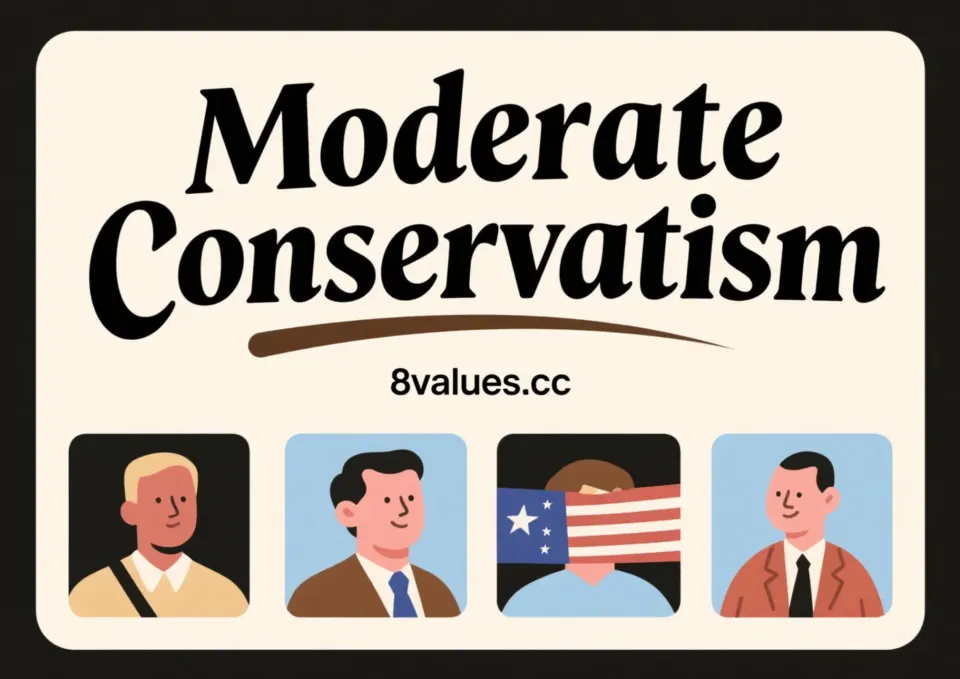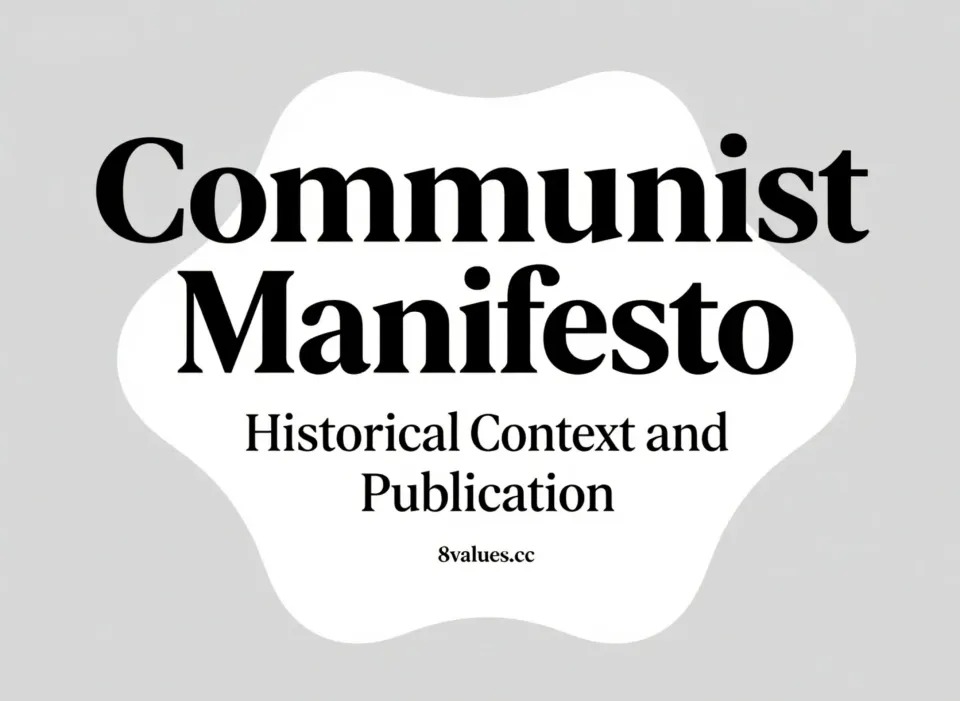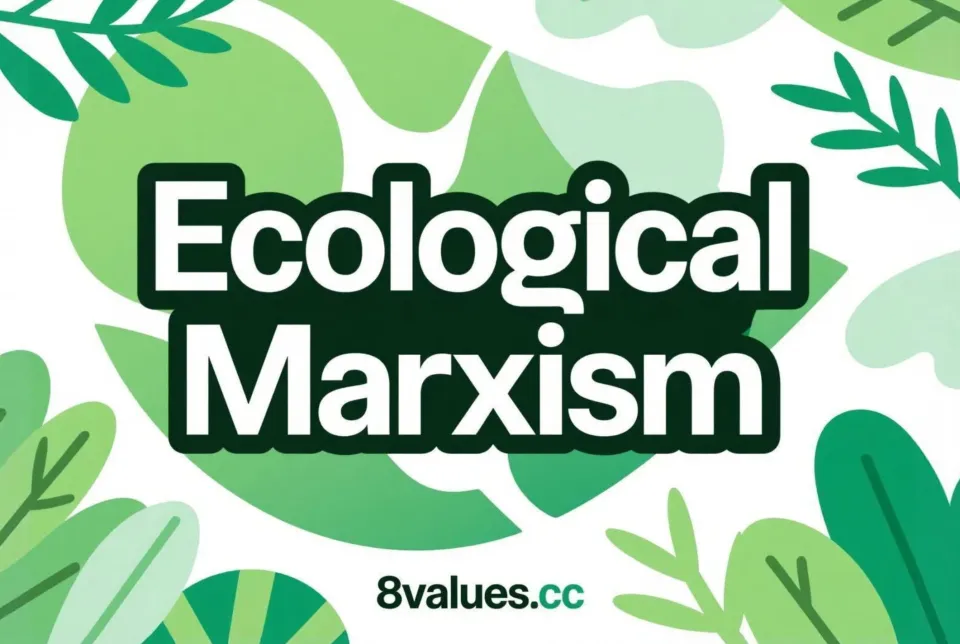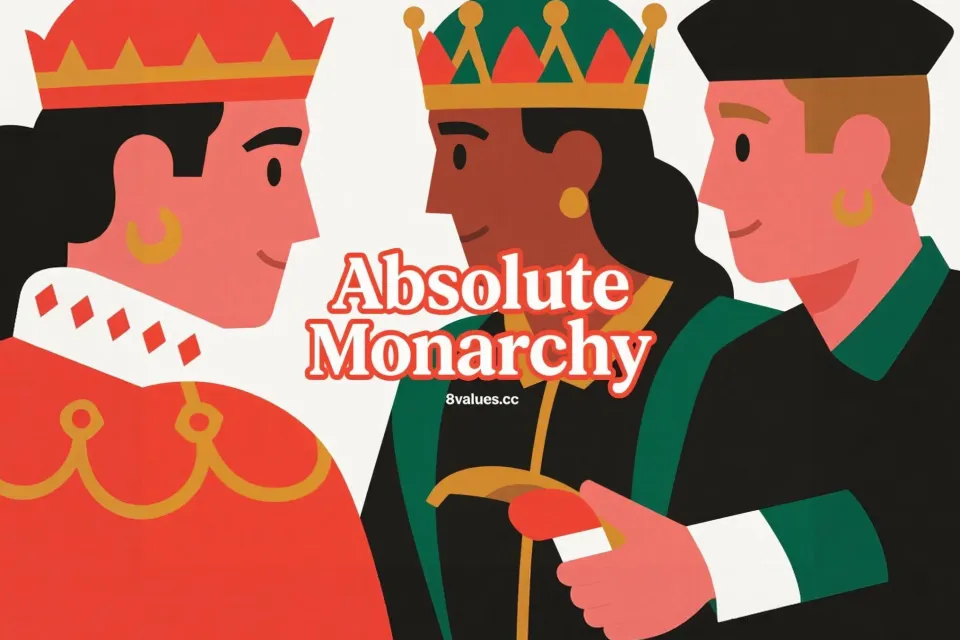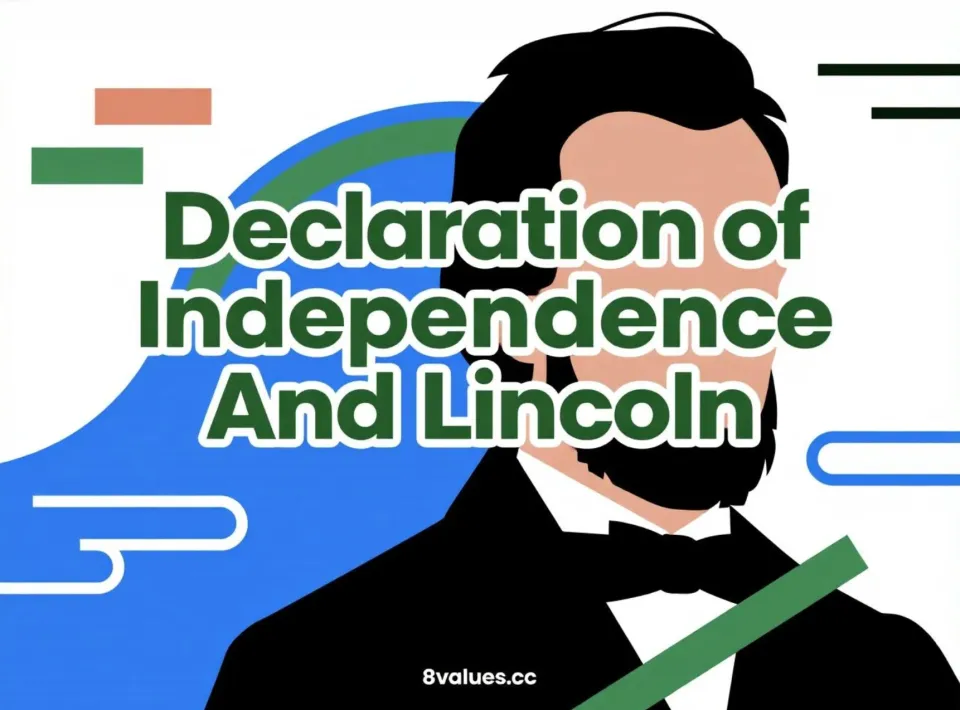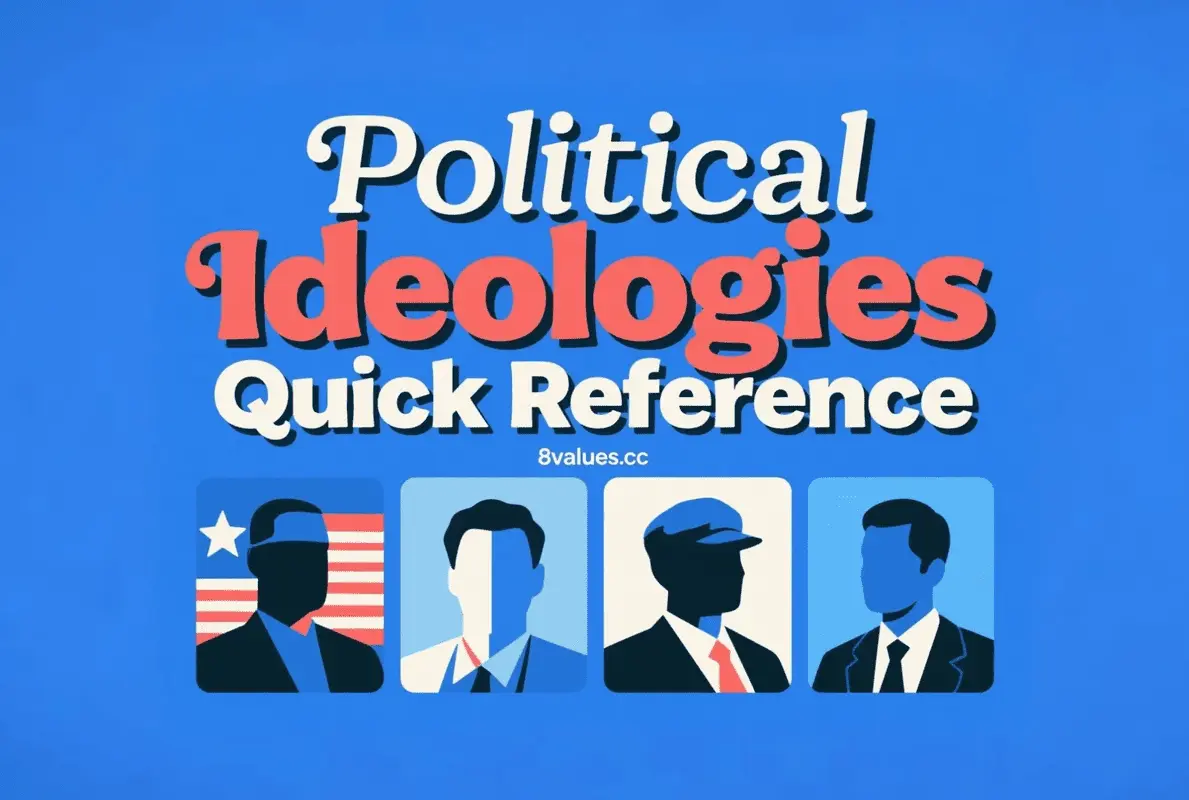Умеренный консерватизм | 8 Обзор интерпретации идеологической идеологии политических тестов
Глубокий анализ основных концепций, исторического развития и глобальной практики умеренного консерватизма и изучить ее уникальную позицию в политическом тесте 8 обзоров. Понимание этой политической тенденции, которая уравновешивает традиции с постепенной реформой, поможет вам лучше понять социальное развитие и идеологический спектр и оптимизировать ваш опыт политического тестирования.
В сложном и изменчивом политическом спектре различные идеологии переплетены, среди которых «умеренный консерватизм» занимает место для его уникального баланса и прагматизма. Поскольку 8 ценностей, нацеленных на тест политической тенденции, направлены на раскрытие, понимание нюансов различных политических идей имеет важное значение для понимания взаимодействия между людьми и обществом. Эта статья подведет вас к глубине всех аспектов умеренного консерватизма, от ее основного определения до глобальной практики, раскрывает эту политическую философию, которая ищет разумный баланс между традициями и изменениями, и поможет вам лучше понять политические идеологические результаты 8 обзоров .
Основные понятия и определения умеренного консерватизма
Умеренный консерватизм - это консервативная школа, которая стремится к середине политического спектра, и его основными чертами являются прагматизм, предпочтение прогрессивным изменениям и уважение к существующим учреждениям. Он определяется как культурная, социальная и политическая философия, предназначенная для продвижения и защиты традиционных социальных институтов и практик. По сравнению с классическим консерватизмом, умеренный консерватизм требует меньше требований и подчеркивает коррекции и корректировки в существующей структуре.
Суть этой идеологии заключается в его балансе, которая пытается сбалансировать консервативную стабильность с необходимым социальным прогрессом, избегая радикальных изменений или жесткого консерватизма. Умеренные консерваторы обычно сочетают в себе принципы свободной рыночной экономики, финансовую ответственность и ограниченные правительственные предложения, но также подчеркивают важность социального порядка, личной ответственности и традиционных социальных структур. Его конкретный оттенок будет варьироваться в зависимости от текущего состояния конкретной культуры и цивилизации, в которой она живет.
Умеренный консерватизм - это не жесткая идеология, а очень адаптируемая политическая позиция, тесно связанная с ее конкретной политической средой. Он избегает крайних позиций, имеет тенденцию решать социальные проблемы посредством компромисса и прагматизма, поддерживает прогрессивную реформу, а не тщательную революцию или полностью поддержание статус -кво. Во многих странах это рассматривается как «средний путь» для своей позиции поиска компромисса, в отличие от радикальных, идеологически чистых левых и правых сил. Этот жанр также часто рассматривается как «конструктивная» сила, чтобы отличить его от «разрушительного» экстремизма.
В некоторых частях Европы умеренные консерваторы часто называют либеральными консерваторами или христианскими демократами. Термин в основном используется в странах, где политические лагеря разделены на левые либералы (то есть социальные либералы) и правые консерваторы, такие как Соединенные Штаты, Польша, Южная Корея и Япония.
Историческое происхождение и идеологические линии развития умеренного консерватизма
Корни умеренного консерватизма можно проследить до просветления 18 -го века, и это было в первую очередь реакцией на радикальные изменения, вызванные французской революцией и промышленной революцией. Ирландский политик Эдмунд Берк широко считается одним из основателей современного консерватизма. В своей книге «Размышления о французской революции» он систематически изложил критику радикальной революции и защиты традиций и упорядоченных изменений.
Берк утверждает, что структура правительства не должна состоять из абстрактной «рациональности», но должна следовать давней устоявшейся модели развития страны и важных традиционных социальных институтов, таких как семья и церковь. Он считает, что человеческий разум ограничен, поэтому люди должны полагаться на существующие традиции страны. Тем не менее, Берк также дал понять, что консерваторы не против изменений, и он написал: «Страна, которая не может принять изменения, не может выжить». Но он настаивал на том, что изменения должны проводиться систематическим и организованным способом, а не внезапной вспышки революций.
С окончанием наполеоновской эпохи термин «консерватизм» был впервые использован в политическом смысле во время восстановления бурбона во Франции в 1818 году, и Венская конференция также ознаменовала возрождение консерватизма в Европе для противодействия либеральным и революционным движениям, вдохновленным французской революцией.
На идеологическую основу современного умеренного консерватизма также глубоко влияет классический либерализм, особенно в отношении индивидуальной свободы, частной собственности и ограниченного правительства. Некоторые критики отмечают, что современный консерватизм в значительной степени предназначен для того, чтобы «выявить и сохранить плоды классического либерализма». Эта уникальная смесь мышления, которая отличает ее от этих идеологий отдельных источников, играет роль «редуктора» против радикального прогресса, который может подорвать существующие достижения свободы и привержена достижению разумного и упорядоченного развития на основе поддержания устоявшихся социальных оснований.
Квентин Хогг, председатель Консервативной партии Англии, однажды сказал в 1959 году: «Консерватизм - это не столько философия, сколько отношение, длительная сила, которая играет вечную роль в развитии свободного общества и соответствует глубокому и постоянному требованию самой человеческой природы». Это несовершенство человеческой природы и пессимистического отношения к «утопическому» плану составляет основное философское восприятие консерватизма.
Плюралистическая ориентация и специфическая позиция умеренного консерватизма
Умеренный консерватизм из -за его баланса и адаптивности демонстрирует диверсифицированную позицию в экономических, социальных и политических областях, избегая крайней догмы.
Экономическая и фискальная политика
Что касается экономической стороны, умеренный консерватизм часто поддерживает политику на рынке и получает широкую поддержку со стороны бизнес-групп и класса белых воротничков. Они считают, что свободные предприятия и капиталистические принципы могут создать самые мощные и инновационные экономики. В финансовом отношении умеренные консерваторы утверждают, что правительство должно принять осторожное и консервативное отношение с точки зрения расходов и заимствования, и подчеркнуть финансовую дисциплину.
Однако, в отличие от чистого фискального консерватизма, умеренные консерваторы демонстрируют значительную гибкость на практике. Они не полностью исключают государственное вмешательство, особенно в областях социального обеспечения и государственных услуг. Например, Христианская демократическая партия в Германии выступала за модель «социальной рыночной экономики», сочетающей свободный рыночный капитализм с сильной системой социального обеспечения. Это показывает, что умеренный консерватизм не рассматривает рынок как единственный принцип социальной организации, но признает, что государство играет роль в поддержании социальной стабильности в определенной степени.
Социальная и культурная политика
По социальным и культурным вопросам умеренное консервативное отношение представляет собой сочетание традиций и прагматизма. Как правило, они поддерживают поддержание организованной религии, традиционных ценностей и семейных моделей, рассматривая их как основные единицы общества. Умеренные консерваторы подчеркивают важность личной ответственности, семейных ценностей и моральных норм в обществе, противодействие экстремальному индивидуализму или политике сепаратистской идентичности. Культурный консерватизм, как один из его аспектов, выступает за сохранение культуры или традиций нации.
Но по сравнению с крайним правом, умеренные консерваторы заняли более прогрессивную позицию по многим социальным вопросам, даже ближе к американским либералам. Например, они могут быть более инклюзивными, чем радикальные консерваторы по таким вопросам, как гомосексуальные права, аборты и т. Д., Разрешение определенного личного выбора и прав. Они также могут поверить, что сосредоточение внимания на социальных вопросах мешает реализации более важных фискальных целей.
Политическая позиция
Политически умеренный консерватизм выступает за поддержание существующих политических систем и законов и подчеркивает порядок и стабильность. Они осторожны с государственной властью и поддерживают индивидуальную свободу и ограниченное правительство. Исторически политический консерватизм когда-то стоял на стороне противостоящего универсального избирательного права, требуя ограничений налогов или имущества на избирательное право, и имел тенденцию защищать элитную политику и анти-мажорритизм. Однако в современных демократических странах умеренные консерваторы будут принимать демократию и ограничивать и регулировать демократию посредством таких систем, как децентрализация, федерализм и судебная проверка, а не продолжение самодержавия.
В международных делах умеренный консерватизм имеет тенденцию принимать осторожную и прагматичную внешнюю политику, чтобы избежать ненужного военного вмешательства. Это стремление к компромиссу и консенсусу позволило ему стать ключевой ролью в формировании коалиционного правительства в многопартийном государстве.
Умеренные консервативные практики с глобальной точки зрения
Умеренный консерватизм имеет разнообразные перспективы в разных странах мира из -за его адаптивности к конкретным культурным и национальным традициям.
Практика в британском и американском мирах
- Соединенные Штаты : Американский умеренный консерватизм отражен в «Республиканцах Рокфеллера» и в современном «Республиканском мейнстримном собрании соседства». Республиканцы Рокфеллера верят в традицию Теодора Рузвельта, полагая, что правительство должно быть достаточно сильным, чтобы проверить и сбалансировать власть крупных корпораций и поддержку политики, такие как экологические нормы, гражданские права и сети социальной безопасности. Бывший президент Джордж Х.В. Буш является известным представителем умеренных и консерваторов. Сегодняшняя «Основная партийная группа республиканцев» привержена прагматическому законодательству и созданию финансовых вопросов над социальными вопросами.
- Британия : «Консерватизм в одной нации» в Британии является важным шаблоном умеренного консерватизма, отстаиваемый Бенджамином Дисраэли. Это политическая философия в патерналистском стиле, которая выступает за то, чтобы социальные элиты несут ответственность за заботу и защиту уязвимых групп в обществе, чтобы обеспечить социальное единство и стабильность. После Второй мировой войны Британская консервативная партия также приняла государственную систему всеобщего благосостояния, созданную лейбористским правительством и управляла и оптимизировала ее на этой основе. Гарольд Макмиллан и Дэвид Кэмерон также считаются представителями умеренных консерваторов.
Практика на европейском континенте
- Германия : Христианский демократический союз Германии (CDU) является типичным представителем умеренного консерватизма, причем ее основной концепцией является «социальная экономика», которая сочетает в себе свободный рыночный капитализм с сильной системой социального обеспечения. После Второй мировой войны партия была привержена преодолению исторических различий, объединении политических сил с разных слоев общества и всегда была твердым сторонником проамериканской и проевропейской интеграции. Анжела Меркель является выдающимся представителем современного немецкого умеренного консерватизма, и его правящий стиль известен своим прагматизмом.
- Nordic : консерваторы в скандиственных странах обычно принимают либеральную консервативную позицию и поддержку, ориентированную на рынок, но также поддерживают государственную систему социального обеспечения во внутренней политике. Например, умеренная партия в Швеции.
- Россия : президент России Владимир Путин также упомянул «здоровый консерватизм», который, по его мнению, должен основываться на «использовании всего лучших, новых, многообещающих вещей для обеспечения постепенного развития» и придает значение осторожному отношению к истории, достижениям, традициям и традиционным религиям.
Практика в Восточной Азии и за его пределами
- Япония : фракция Хирочи Хоккайдо в Либерально -демократической партии (например, бывший премьер -министр Фумио Кишида) считается умеренной и консервативной. Yomiuri Shimbun также занимает умеренную и консервативную позицию, подчеркивая умеренную дипломатию про-США. Японский консерватизм считается адаптированным к нынешней реальности.
- Южная Корея . Основные консервативные партии Южной Кореи (такие как Национальная партия власти) постоянно корректировали свои формы на протяжении всей истории. Некоторые средства массовой информации, такие как Central Daily News, считаются умеренными и консервативными.
- Сингапур : Как правящая партия, Народная партия действий выступает за консервативные ценности в форме «азиатской демократии» и «азиатских ценностей».
Умеренный консерватизм и общественный договор
Существует тесная связь между умеренным консерватизмом и концепцией общественного договора. Считается, что успех постепенного улучшения Великобритании и Соединенных Штатов заключается в том, что сила прогресса и консерватизма может достичь ряда несовершенных и постоянно улучшать временные социальные контракты. Этот общественный договор является классической концепцией либерализма и до сих пор не является безвременным и является ключевой основой для разрешения современных социальных конфликтов.
Основные свободы в социальных контрактах - это почти все негативные свободы (такие как равные возможности), а не положительные свободы (такие как равные результаты). Даже если эти принципы не будут сначала защищены англо-американским консерватизмом, они, по крайней мере, их признаны. Умеренный консерватизм может противостоять радикальной либеральной политике, но он не может нарушить договорный принцип, который он разделяет с либерализмом. Например, американские конституционалисты защитили свои долгосрочные интересы посредством конституционных ограничений и регулирования демократии, формируя беспроигрышную ситуацию с массовыми обществами, которые можно рассматривать как общественный договор в американском стиле.
Преимущества, проблемы и будущие перспективы умеренного консерватизма
Умеренный консерватизм играет уникальную роль в сегодняшнем сложном политическом ландшафте, имея свои преимущества и сталкивается с серьезными проблемами.
Преимущества и ограничения
- Преимущества : Умеренный консерватизм имеет гибкость, стабильность, инклюзивность и практичность. Он может найти баланс между традициями и современностью, адаптироваться к социальным изменениям, избежать социальных беспорядков и поддерживать порядок посредством постепенных реформ. Его инклюзивность позволяет ему привлекать центристских избирателей, способствовать политическому консенсусу и сосредоточиться на практических последствиях, делая политику более эксплуатационной.
- Ограничения : умеренный консерватизм может подвергаться критике как «слишком умеренный» или «без принципов» для удовлетворения потребностей радикальных избирателей. В сотрудничестве с либералами или другими фракциями он может потерять некоторые основные ценности консерватизма из -за чрезмерного компромисса. Его адаптивность также может показаться слишком медленной или консервативной в быстро меняющемся обществе. Некоторые критики даже утверждают, что у умеренного консерватизма не хватает последовательной философской основы и что его позиция часто является «средней основой» других идеологий, а не его собственным ясным видением.
Современные проблемы
Умеренный консерватизм столкнулся с серьезными проблемами со стороны правого популизма во всем мире после входа в 21-й век. Популистские движения, такие как движение чаепития в Соединенных Штатах и Трампизм, напрямую повлияли на рациональность, компромисс и институциональную власть, которую считают умеренными консерваторами с их сильными анти-элитными, анти-истеблишментами и обращением к националистическим настроениям. Эта популистская тенденция побудила консервативные партии стать более консервативными и популистскими.
Кроме того, в контексте глобализации умеренный консерватизм также должен иметь дело с новыми экономическими и социальными реалиями, вызванными культурными войнами (такими как гендерные, расовые и иммиграционные проблемы) и быстрыми технологическими изменениями. Эти проблемы требуют, чтобы умеренный консерватизм продолжал гибко корректировать свои стратегии и позиции, сохраняя при этом свои основные ценности.
Будущие перспективы
Несмотря на многие проблемы, умеренный консерватизм по -прежнему имеет незаменимую ценность в сегодняшней поляризованной политической среде. Он служит «конструктивной» силой, ищущей компромисс, который может обеспечить стабильный якорь в волне радикализма. Прагматические качества умеренного консерватизма позволяют ему превзойти жесткие идеологические антагонизмы, достигать консенсуса с другими промежуточными силами, такими как умеренные либералы, и совместно способствуют прагматической политике. Эта возможность имеет решающее значение для поддержания эффективных государственных операций и избегания социальных ситуаций.
В будущем умеренный консерватизм, возможно, потребуется более активно справляться с изменением климата и экологическими проблемами, переопределяет способ, которым традиционные ценности распространяются в эпоху цифровых технологий, и сбалансировать национализм с глобализмом в мультикультурном обществе. Его будущая судьба будет зависеть от того, может ли она успешно справляться с этой волной против истеблишмента, не теряя своих основных принципов и играть ключевую роль в восстановлении политического доверия и преодоления социальных разногласий.
8 обновлений умеренного консерватизма в политических тестах
Понимание нюанса умеренного консерватизма имеет решающее значение для проведения 8 ценностей политических тестов и точной интерпретации ваших результатов. Тест 8 Values помогает пользователям выявлять свои политические тенденции и сопоставить их с 52 различными политическими идеологиями 8 Values, оценивая позиции по четырем аспектам: экономическому, дипломатическому, социальному и правительству.
Если вы склонны поддерживать прогрессивные реформы, поддерживать традиции и социального порядка в своих тестах, принимая рыночную экономику и определенное социальное обеспечение и проявлять осторожность в отношении радикальных изменений, то вы, вероятно, окажетесь в результатах теста, чтобы соответствовать умеренному консерватизму. Изучение 8 -х тестов может не только помочь вам прояснить вашу политическую позицию, но и углубить ваше понимание глобальных политических мыслей, чтобы лучше участвовать в мышлении и обсуждении социального развития.
Умеренный консерватизм, как политическая философия, которая ищет баланс между традициями и изменениями, заключается в прагматизме, постепенности и гармонии. Он имеет богатую практику в разных странах мира и продолжает адаптироваться к развитию и проблемам времени. Понимание умеренного консерватизма может не только помочь нам лучше понять сложную политическую картину, но и предоставить человеку более осторожную структуру мышления при столкновении с социальными проблемами. Кроме того, вы можете найти больше статей о политической теории и ее реальных приложениях в нашем блоге .
